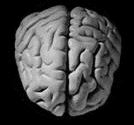When Chinatown Was a World Apart Historians like to quibble about names. Ross Alley is recognized as the first alley in San Francisco—that is, the first Alley. (All the previous alleys were called "Street.") There have been long stretches of time, however, when Ross Alley was called by other names. To this day, many still call it Lu Song Hang, or Lu Song Alley. At one time, it was also popularly known as Spanish Lane, and known more recently, by neighbors, as Mexican Alley. Both of these names come from the alley's 19th century history as a street of brothels, many of which for a time offered Latina prostitutes. The alley's bagnios, as brothels were called, were not the small, crude cribs of Jackson and Washington Streets, where prostitutes openly displayed their "wares" to potential customers in the street. These were mostly classy joints, with liquor bars and waiting rooms, ornate furnishings, and full entertainment for "gentlemen." Ross Alley gradually gave way to SROs (single room occupancy hotels) after prostitution became illegal, but it continued to be part of the underworld for some time, and had hidden brothels for many decades. In the 1920s, while police were occupied with bootleggers, they were also trying to control Chinese Tong gangs. After Police Chief White eradicated the Barbary Coast mayhem, Tong entrepreneurs continued to run opium dens, gambling parlors and brothels staffed by Chinese slave girls, shipped in by the Tong gangs. Rookie officer Dan McKlem began his career in Chinatown in 1925 under the new Chief Daniel O'Brien. He explains, "Your effectiveness depended on your contacts with the Chinese. They had to take a liking to you or they wouldn't give you the time of day. And even then, there were some things they just wouldn't tell you.…I remember in the last of the Tong Wars there was a guy named Wong Quong, who was killed on January 6, 1926, in Ross Alley. We knew he'd been killed because of a war, but we could never figure out just who did it. The Chinese were a secretive lot anyway, by and large, but none of them could talk about a murder like that. They would have been violating the code." This was, of course, before anyone Chinese was welcome on the police force or in any part of the power structure. Immigrants were commonly seen as "them." Today, San Francisco's Police Chief, Heather Fong, is of Chinese ancestry. Ross Alley is now used for film shoots (such as Indian Jones and the Temple of Doom, Karate Kid II, and Big Trouble in Little China). It's also home to one of the few producers of real-live, human-handled fortune cookies (since 1962). There's also a barber (since 1963) who has reputedly shorn such luminaries as Frank Sinatra, Matt Dillon, Peter Ustinov and Michael Douglas. —Joel Pomerantz This article was originally written for
|
| [Top of page] | [More cool SF stories] | [Previous page] |
